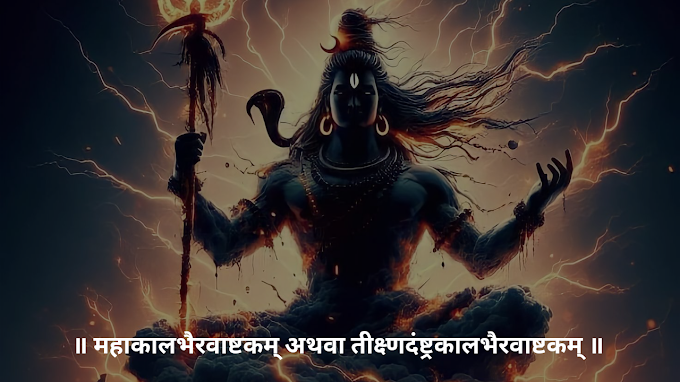Question 2 : What do you mean by protective discrimination? Do you agree that protective discrimination violates the principles of fairness? Give reasons in support of your answer.
The oppression of the weaker section of society is not behind the curtains for anyone. The subjection of weaker section to one or the other suppression and discrimination by the superior and dominant sections of society is as old as Adam. They suffered a lot in every day in day out throughout their life. They were made to experience discrimination in some or the other way at each and every step of their life. This evil had to be nipped in the bud but now as aftermath it has become a huge tree with its roots deep buried in the Indian society. The upper crust rules the democracy everywhere.
Discrimination means the act of differentiating between two people. It is granting of some advantage to a particular section or class of society over others. The weaker section was left in cold for years as nothing more than garbage in the society. To take one’s measure from the class or caste to which he or she belong amounts to discrimination.
The framers of our constitution were very well conscious about the distressed condition of these weaker sections of the society. They putted their best foot forward for the upliftment of weaker sections by providing some auspicious provisions in the constitution for instance equality under article 14, prohibition on discrimination under article 15 and many more. In some of the articles framers of our constitution has also provided some privileges in the favour of weaker and backward sections of society. In other words it means that framers of our constitution has provided for protective discrimination in the constitution.
Protective discrimination means a privilege or some right in favour of those who had been discriminated and oppressed since ages. It is a well known quote that “IRON CUTS IRON”, hence discrimination counters discrimination. It is evident from history that one sort of discrimination is destructive while the other one is protective and curative in nature.
Now what this weaker section constituted of? It includes not only schedule caste, schedule tribes and other backward classes but unfortunately the female section of society too. Whether they are from higher class or lower class they are they had continuously faced injustice and partiality. Along with the backward class woman had been subjected to discrimination and hardships they are not given an equal status as that of the man in the society.
Constitutional Provisions
Article 14 of the constitution provides that “the state shall not deny to any person equality before the laws within the territory of India”. This article provides for equality among all the citizens so that there will be no upper class or lower class in society. According to this article among equals the law should be equal and should be equally administered.
Article 15(1) says that the state shall not discriminate among the citizens only on grounds of religion, race, caste, sex or place of birth or any of them. So the general principle is that the state cannot discriminate among citizens.
Like provision is given in article 16 of the constitution relating to job opportunity. Article 16(1) guarantees equality of opportunity for all citizens in matters of ‘employment’ or ‘appointment’ to any post under the state. Clause(2) says that no citizen shall, on grounds only of religion, race, caste, sex, descent, place of birth, residence or any of them, be ineligible for or discriminated against in respect of, any employment or office under the State.
Article 17 abolishes “Untouchability” and forbids its practice in any form. The enforcement of any disability arising out of untouchability is to be an offence punishable in accordance with law.
Exceptions:
The above discussed constitutional provisions provide for a general rule that the State cannot discriminate among its citizens. But as we all know weaker sections had been left miles behind due to the discrimination they had been forced to face, so to bring them at par with other sections of society some of the articles of our constitution provides for an exception to the general rule of non-discrimination. In some of the articles protective discrimination has been provided in constitution.
Article 15(3) says that nothing in article 15 shall prevent the State from making any special provisions for women and children.
Article 15(5) added by 93rd Constitution Amendment Act, 2006 provides that nothing in article 15 or in sub-clause (g) of clause(1) of article 19 shall prevent the state from making any special provision, by law, for the advancement of any socially and educationally Backward classes of citizens or for the Schedule Caste or Schedule Tribes in so far as such special provisions relate to admission to educational institution including private educational institutions, whether aided or unaided by the state, other than the minority educational institutions referred to in clause (1) of Article 30.
Article 16(4) enables the State to make provision for the reservation of posts in government jobs in favour of any backward classes of citizens which, in the opinion of the State, is not adequately represented in the services of the State.
Article 16(4-A) added by 77th Amendment, 1995 empowers the State to make any provision for reservation in matters of promotions for SC and ST’s which , in the opinion of the state, are not adequately represented in the services under the state.
Article 330 provides for the reservation of seats for Schedule Castes and Schedule Tribes in the autonomous district of Assam.
Article 332 provides for the reservation of seats for Schedule Caste and Schedule Tribes (except Schedule Tribes in the autonomous District of Assam) in the Legislative Assemblies of every state.
Conclusion:
No, I do not agree whit it because ,
Though the general rule laid down in our constitution provides that all the citizens of India are equal and they cannot be discriminated on the basis of race, caste, sex or place of birth, some of the exceptions are also provided as to that general rule which speak of protective discrimination. Weaker section of society has been lag behind in the race of life so for their upliftment and protection and to bring them at the equal status with other sections of society protective discrimination is basic requirement of our democracy. Since Independence there has been a great change in the condition of the weaker sections in India but still the ultimate destination is miles away.






0 Comments
Please do not enter any spam link in the comment box.